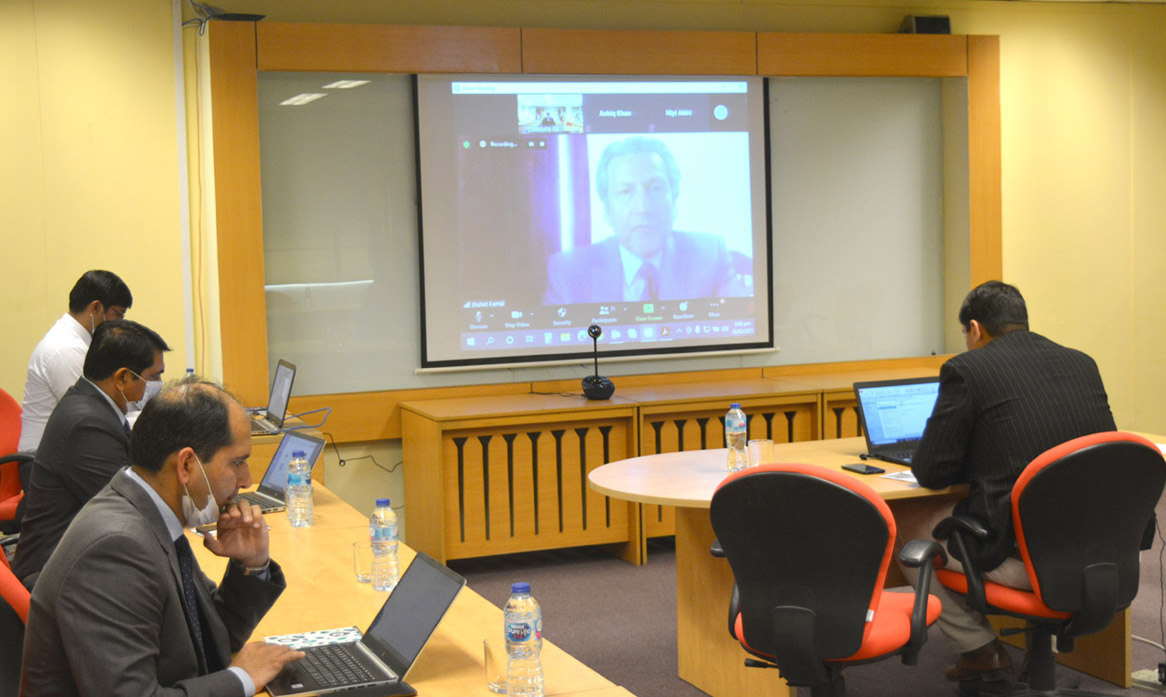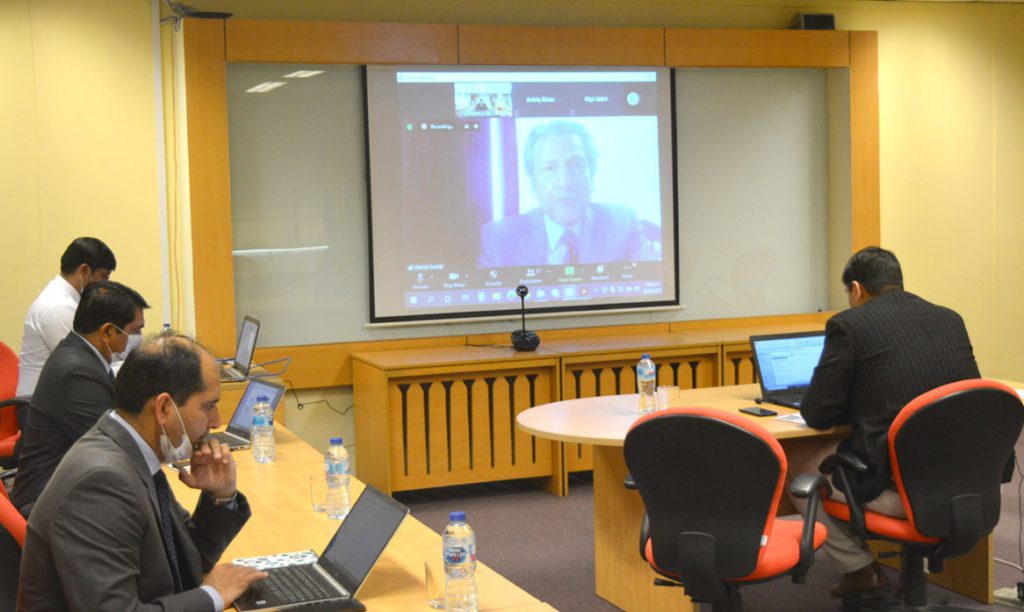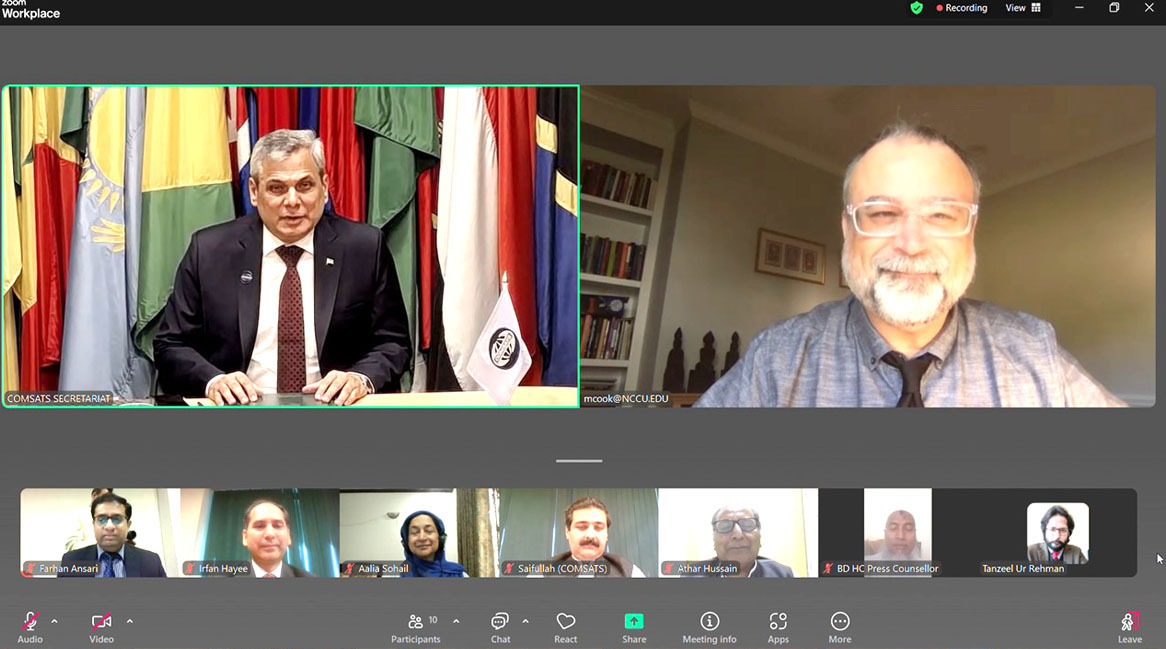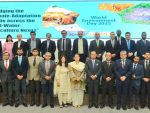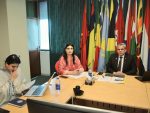COMSATS Centre for Climate and Sustainability (CCCS) in collaboration with the Council for Scientific and Industrial Research (CSIR) of Ghana, Forestry Research Institute (FORIG) of Ghana, and Forestry Research Network of Sub-Saharan Africa (FORNESSA) co-organized a webinar entitled “Sustainable management of forests and challenge of deforestation in the Global South”, on 18th February 2021. The webinar was aimed at sharing knowledge and insights on the theme of the event as well as propose actions for governments to accelerate and scale up efforts to mitigate deforestation.
The event was moderated by Dr. Ernest Gordon Foli, Principal Research Scientist at FORIGs – CSIR, and member of UN Secretary General’s Advisory Group on the Global Sustainable Development Report (2019), and included following speakers: Dr. Tonjock Rosemary Kinge, Associate Professor of Mycology, Department of Biological Sciences, University of Bamenda, Cameroon; Mr. Mauricio Andrés Valencia Camelo, Environmental Engineer, International Centre for Physics (CIF), Colombia; Mr. Jacob Amoako, Measurement, Reporting and GIS officer at Climate Change Directorate of the Forestry Commission of Ghana; Prof. Dr. Maher J. Tadros, Department of Natural Resources and Environment, Jordan University of Science & Technology, Jordan; Dr. Steve Makungwa, Forest measurements, modeling and climate change expert at University of Agriculture and Natural Resources, Malawi; Mr. Shiva Pariya, Forest Officer, Ministry of Industry, Tourism, Forests and Environment, Nepal; Dr. Samuel Olalekan Olajuyigbe, Senior Lecturer, Department of Forest Production and Products, University of Ibadan, Nigeria; and Mr. Ashiq Ahmad Khan, Scientific Representative of EvK2CNR Association, Pakistan.
In his opening remarks, Ambassador Shahid Kamal, Head of CCCS, highlighted the importance of forests and discussed the environmental, economic and social aspects of this ecosystem. Prof. Daniel Ofori, Director of FORIG/CSIR, delivered his key note address in which he highlighted the challenges of deforestation and mitigative strategies to cope this challenge.
The speakers highlighted some key points on the theme of the event. Significance of forests from cultural, economic, social and environmental perspectives was highlighted. Deforestation was considered a key contributor towards water scarcity and creating imbalances in ecosystems. Irrational urban development was considered a key challenge threatening forests and related ecosystems, due to loss of biodiversity and overuse of wood for timber and fuel. Loss of natural habitats causes major environmental setbacks in terms of climate change and biodiversity. Commercially, forests were considered important for providing ecotourism opportunities for livelihood of people, which is why reduction in forest cover could increase unemployment.
The event recommendations included:
- Alternate and clean fuel is best approach to reducing demand of fuel wood coming from forests;
- Mainstreaming of new technologies and environment-friendly approaches is necessary to reduce dependence on fuel wood;
- Formulation and implementation of suitable government level policies is necessary for forest preservation and regeneration; and
- Urban forestry could be a good approach for clean environment and fresh air, while agro forestry could be a useful adaptive approach to address food insecurity.

